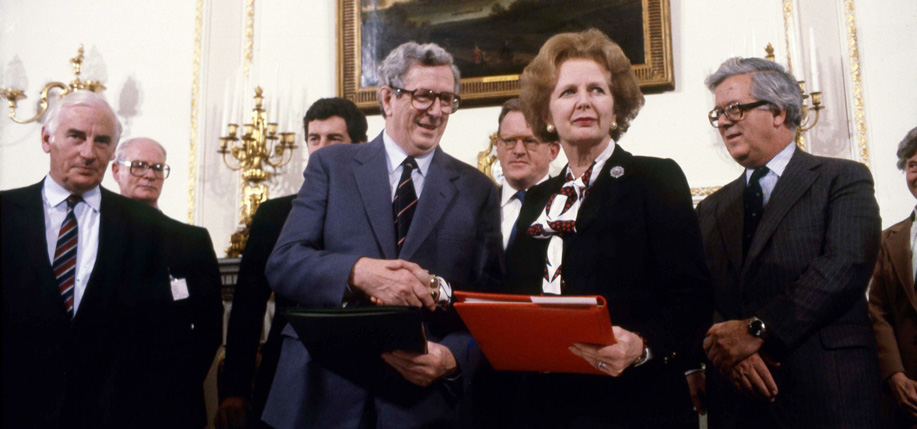November of last year marked the 30th anniversary of the signing of the Anglo-Irish Agreement, which attempted to bring an end to the sectarian violence in Northern Ireland. Signed by then-Taoiseach Garret FitzGerald and Prime Minister Margaret Thatcher, the Agreement gave the Republic of Ireland a consultative role in Northern Ireland’s affairs and offered the possibility of a united Ireland, should a majority of the population wish it.
The Agreement met vehement opposition from both Unionists and Republicans. The Ulster Unionist Party and Democratic Unionist Party quickly formed the “Ulster says no” campaign and organized a huge rally at Belfast’s City Hall protesting the Agreement just a week after it was signed. Ian Paisley, leader of the D.U.P., saw the Republic of Ireland as a hotbed of I.R.A. terrorists, and at the rally demanded of the crowd, “And Mrs. Thatcher tells us the Republic must have some say in our province? We say never, never, never.”
Republicans opposed the Agreement because it forced them to recognize Northern Ireland as part of the U.K., which “copper-fastened partition,” according to Gerry Adams. Ultimately, the Anglo-Irish Agreement did little to quell the Troubles, though it is acknowledged to have paved the way for the eventual Good Friday Agreement. ♦


Leave a Reply